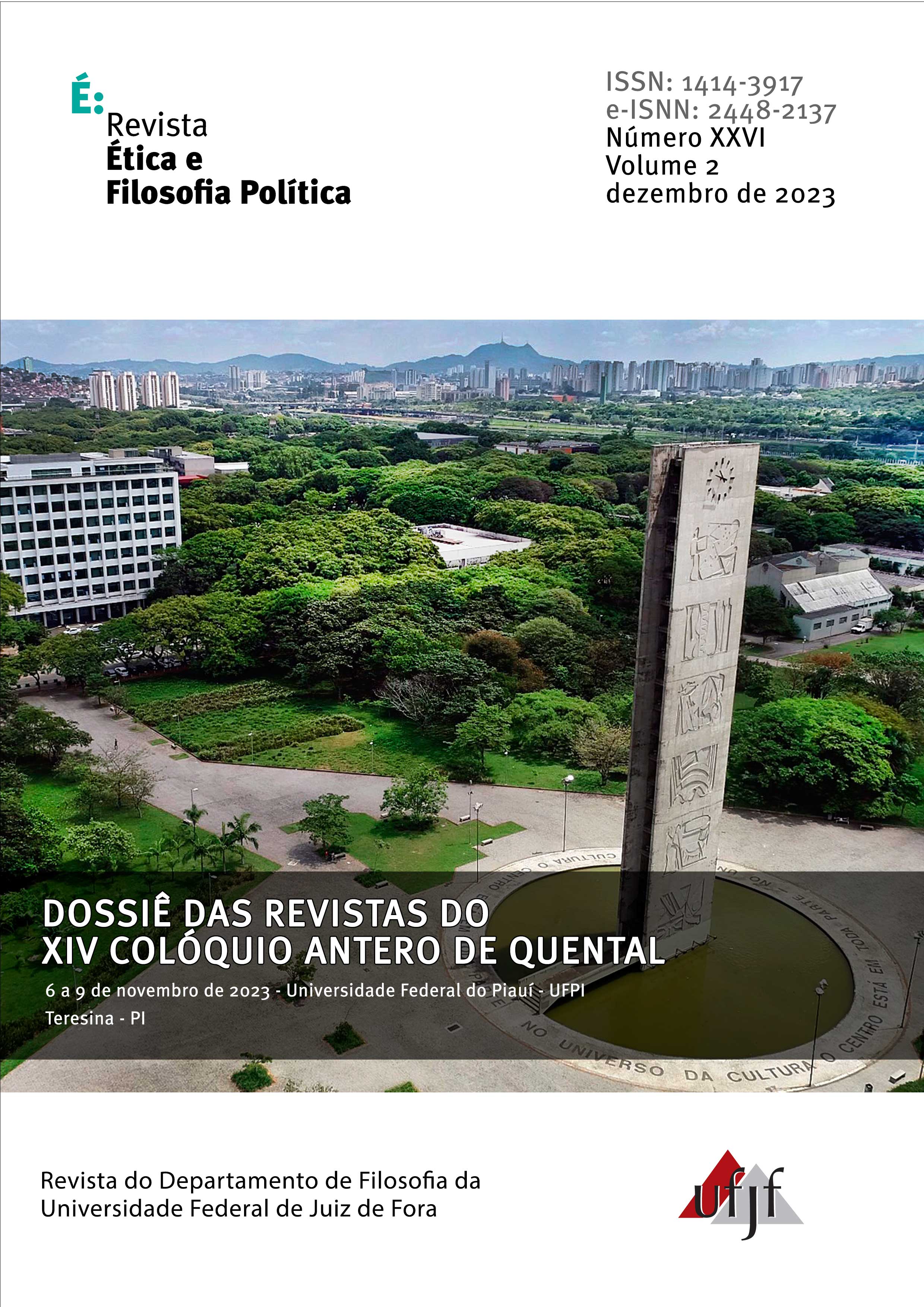A trilha da e pela subjetividade no pensamento de Dieter Henrich
DOI:
https://doi.org/10.34019/2448-2137.2023.43909Abstract
ABSTRACT: The aim of this paper is to provide the reader with an attempt to understand the path taken by Dieter Henrich considering his position both as a theorist of subjectivity and as an excellent interpreter of the different figures of classical German philosophy. In this sense, we seek to delineate a path through which it is transparent that the emergence of the fundamental problems that Henrich addresses and delves into throughout his life cannot be seen as dissociated from those faced by that tradition of thinkers, even though his solutions and outcomes indicate a turning point in relation to what those thinkers achieved. It will be demonstrated that from Fichte's failure, originally emphasized by Henrich, to find a foundation for self-consciousness, he turns to an attempt to search for a foundation that does not presuppose what should be the foundation, namely, self-consciousness itself. The recourse to Hölderlin, thus, appears in his productions aiming to stabilize the tensions between the fact that we are subjects endowed with self-consciousness, but also people in the world. The proposition, in this sense, of the necessity for speculative or extrapolative thinking, then, comes in tow, that is, from one that satisfies the need for life's guidance starting from this very condition of elusiveness of a foundation. The alternative presented by Hegel, to the extent that it presents itself as a counter-project relative to conceptual form, we will demonstrate, appears promising to Henrich, but still stumbles on his aspirations, meaning, it aimed to clarify too much a structure inherently hidden, which ended up subjecting the entire speculative project to the mode of operation it explained.
Keywords: Subjectivity; Self-consciousness; Henrich; Fichte; Hölderlin; Hegel.


